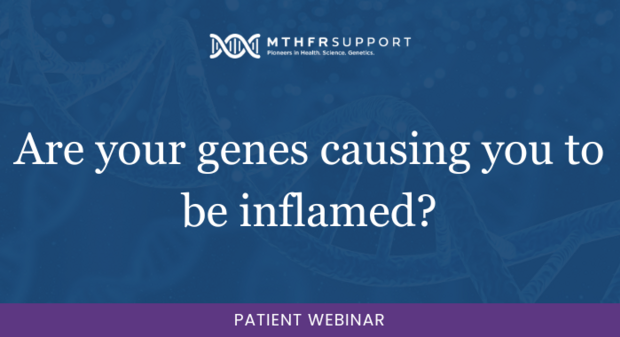Are your genes causing you to be inflamed?
Did you know that chronic inflammation can predispose you to many diseases like
- atherosclerosis,
- insulin resistance and Diabetes Mellitus type 1,
- autoimmune disease,
- bone density issues,
- tissue destruction ie: rheumatoid arthritis
- PCOS (Polycystic Ovarian Syndrome)
- and cancer.
We have special genes that are supposed to help us with our inflammatory pathway but when they are upregulated and produce more inflammation than we can cope with, we can be prone to chronic disease. Some of these genes are Interleukin – 6 (IL-6), C-Reactive Protein (CRP) and Tumor Necrosis Factor alpha (TNFa) and are the target of many pharmaceutical drugs like Tocilizumab or Sarilumab, however there are plant derived polyphenols that can dampen down the effect of these genes to reduce the inflammatory processes.
We saw that many people with these inflammatory based genes upregulated during COVID were more prone to the ‘cytokine storm’ that was created as a response to the infection with the virus.
Tumor necrosis factor alpha (TNFa) plays a distinct role in disease outcomes and in the research has been associated with:
- Crohn’s Disease
- Alzheimer’s Disease
- Multiple Sclerosis
- Diabetes Type II
- Rheumatoid arthritis
- Heart failure
- Atherosclerosis
- Liver disease
- Allergic asthma
- Fever
- Cancer
- Osteoporosis and
- Systemic Lupis Erythematosus (SLE)
TNFa’s role in cancer causes immune disturbances and the balance between oxidative stress and antioxidants is disturbed.
C-reactive protein (CRP) also is a big player in our response to inflammation. At a low level it is good, however if it is upregulated too much then it can cause harm. It is regulated by IL-6 so these are closely related. CRP is not only an inflammation marker but regulates metabolism and body weight as it directly regulates energy balance, body weight, insulin sensitivity and glucose control through its direct regulation of leptin.
Join Carolyn for this deep dive into inflammation and how it may be the key to your chronic health conditions.

